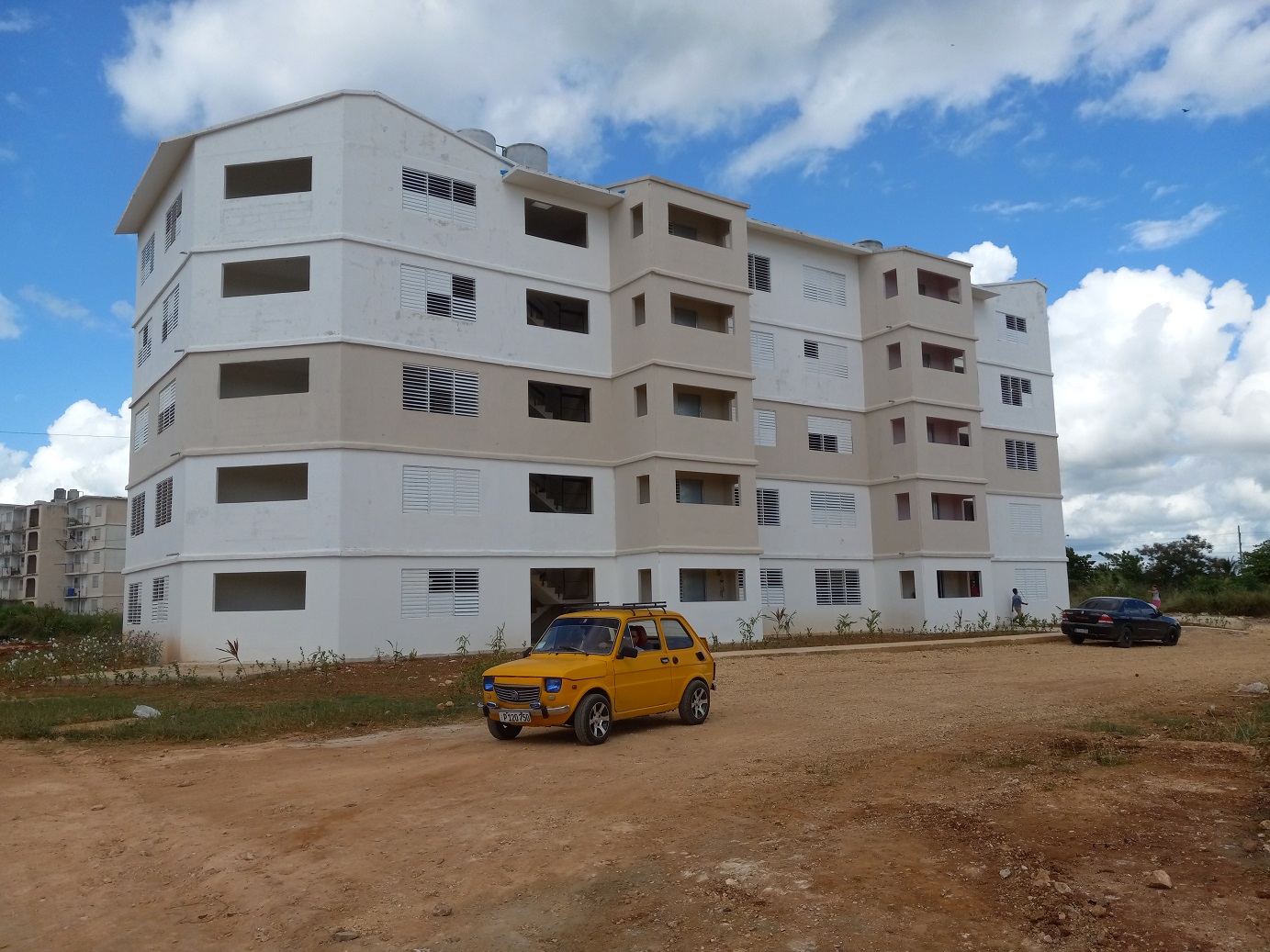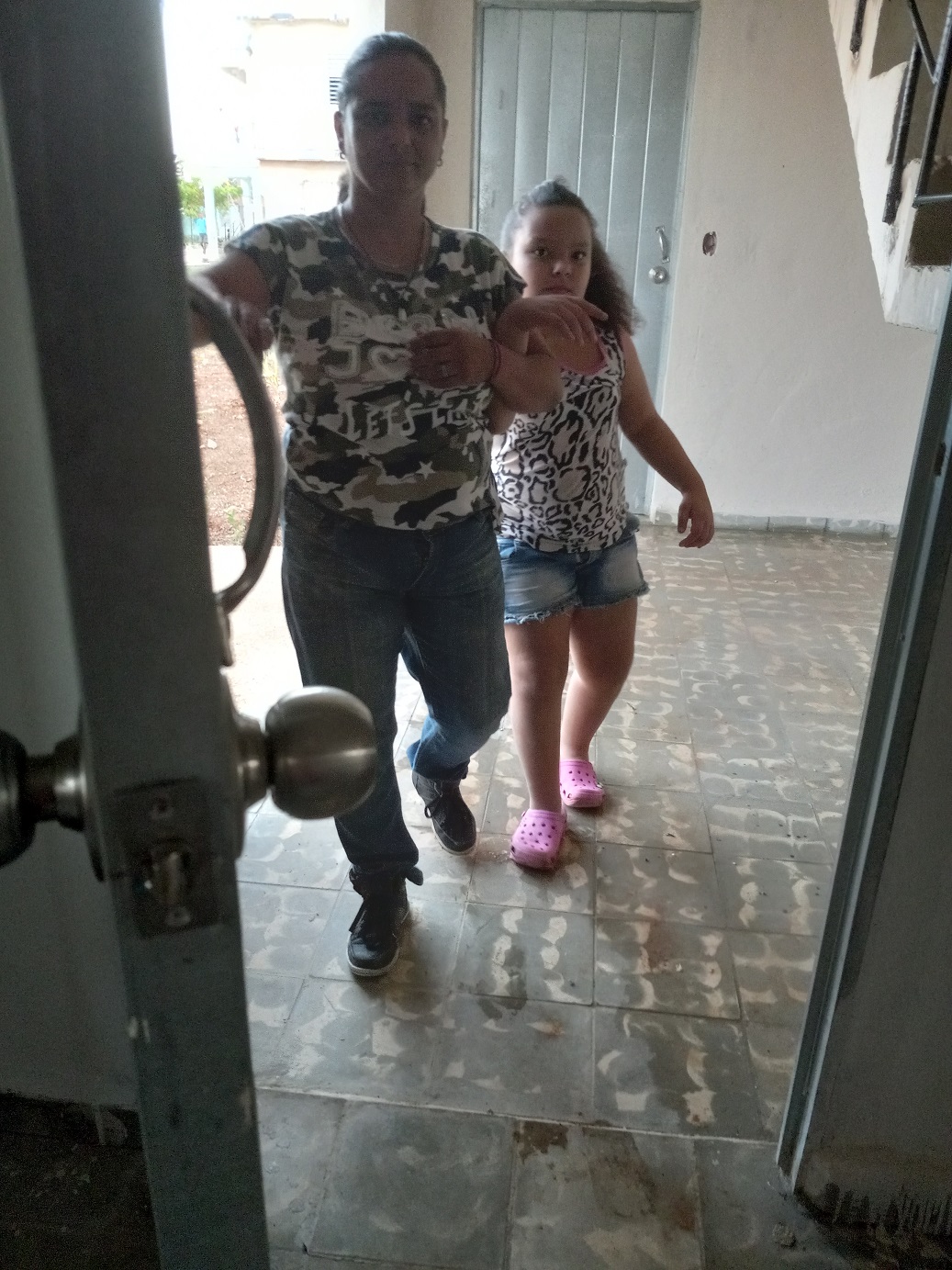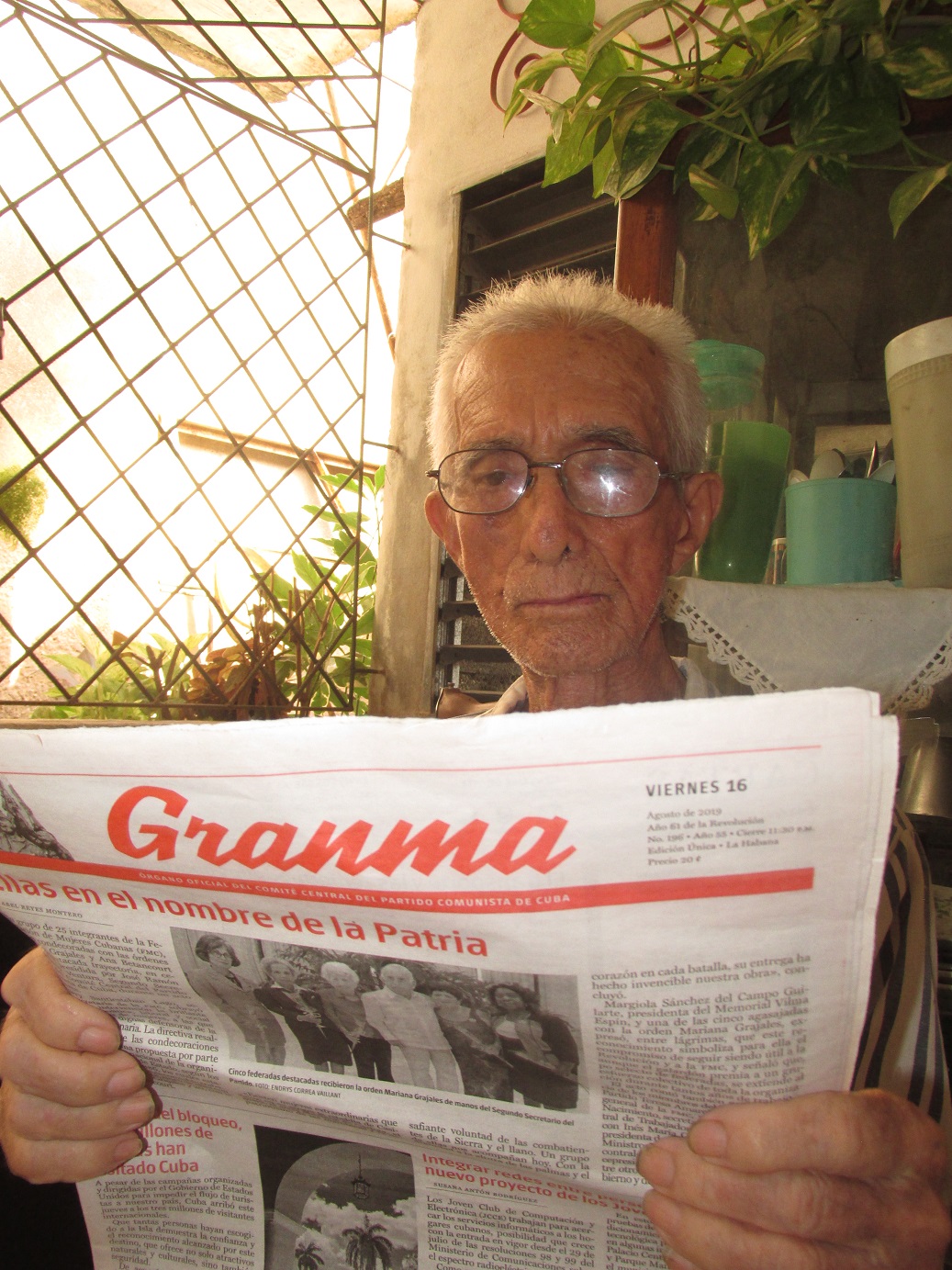
When the governor of the province arrived at the meeting and portrayed in words each of the cases to which an apartment was going to be delivered, everyone was perplexed with the sequence and security with which he did it, as if the script had been studied beforehand.
And no, there was no predetermined script for any film, only that those in need had been waiting for a home for some time, a decent house that would give them existential tranquility and the time had come, as Yordanka Pérez Martín, a graduate in nursing and worker at the Antonio Luaces Iraola Provincial Hospital.
«Very grateful that I feel. After a few years of waiting, I have my house and my disabled girl will feel better, without a drop falling on her bed on rainy days and without a steep staircase that she could not climb.
«…After a few years…», and Yordanka cuts the sentence with emotion.
And it is that the last ones who received a blanket in the province were the victims of Hurricane Irma; those of the neighborhoods of Palmarito and La Pulla, on the same coast of the ultramarine town of Júcaro in the south of the province; those of Punta Alegre; the Morón oil houses, plus other settlements mercilessly hit by the hurricane. They, those who were left without a roof and without walls, were given priority at some point, without abandoning other needs.
After the cyclone, COVID-19 halted all types of construction and forced a rough road due to resource constraints and other impacts.
SHARING AND THANKS
At the meeting, only 20 homes to the north of the city would be delivered, distributed in a five-story building, Girón typology, with its constructive innovations when compared to the oldest; at least these, of good quality, have a sloping roof (gabled), so that possible leaks from the top floor are completely extinguished.
The distribution and gratitude: several social cases, a leader, a combatant, a builder, a journalist, an athlete who has been a member of a national team for more than a decade.
In short, each of those gathered there brought their own story. Yordanka herself, with her daughter Viallney, a 10-year-old infant with a brain tumor and another newly discovered condition in her neck.

Yordanka and her daughter Viallney enter their new home
«My daughter's operation was worth more than 200,000 dollars in any country and in Camagüey they did it for free. And now, that they sent her to Havana, they put me in a taxi that takes us and brings us back, and if I had to operate on her, it won't cost me anything either. And the full-time bottle of oxygen, and the refrigerator, and the blender, and the sheets, and the towel and the pair of flip-flops, which, even though the girl was not walking, they gave it to her. And now the house; the apartment on the first floor, because she can't climb stairs. How can I not thank you!"
As an experience that "came to stay" the neighborhood care program has been described, together with people in vulnerable situations. The neighborhood's ability to support and considerably reduce these vulnerabilities has been demonstrated, in conjunction with the factors: CDR, FMC, Education, Health, culture with community projects...
Orlando Díaz Rodríguez, provincial deputy director of attention, assistance and social work, told Granma that at the end of last year in the province there were 6,732 nuclei protected by social assistance and until last October the figure had decreased to 5,611, with the possibility of continuing decreasing, due to the fact that people have incorporated into employment to improve the situation of the family nucleus and transform it, as the country's policy outlines, on the path towards the reduction of the welfare part.
MANY DOORS FOR VULNERABLE PEOPLE REMAIN TO BE OPENED
Kenia María Valdés Rosabal, magistrate of the Civil, Family and Administrative Chamber of the People's Supreme Court of the Republic of Cuba defines vulnerability as "a circumstance linked to the human being, due to the various causes and situations that generate it from the different areas of life in society (disability, minority, gender, gender identity, old age, ethnic origin, religious creed, nationality, sexuality,...).
He affirms that the protection of people in vulnerable situations also depends on social solidarity, more than on laws in general, which in this matter say nothing if human conscience does not evolve to enforce them effectively, from the family environment. , the community, the labor and social fields, where only the affections, the understanding and satisfaction of their limitations, needs and preferences would contribute to an authentic inclusion and safeguard of their rights on an equal footing.
Other scholars define it as "anything that limits or hinders the ability of a person, family, home, group, or community in the interest of anticipating, dealing with, resisting, and recovering from the effect of a natural, social, economic, or health threat, as well as take advantage of the opportunities available in each territory.
In correspondence, Cuban President Miguel Díaz-Canel Bermúdez has reiterated that «...First aid cannot be assistance, you have to provide them with a job to improve their living conditions (...). The construction of Socialism is not done in a welfare way, what must be sought is social transformation»
Several interventions by Marta Elena Feitó, Minister of Labor and Social Security, state that a person who can work and is not doing so is not vulnerable... «Having three or more children is not a reason for a mother to stay at home depending on social assistance. The greatest protection: offer him employment, childcare solutions and demand parental responsibility.
A person who can work and is not doing so is not vulnerable
The care of the family from the family itself is part of the policy of the Cuban State
This strategy has its roots in Ciego de Ávila in the community resuscitation program, with the promotion of collective participation to rehabilitate or build houses, medical offices, bakeries, parks, roads, hydraulic works and warehouses and, at the same time, respond to other needs and concerns that are part of the reality of these scenarios with the push of the Government, the actions of various economic actors and the doing, a lot of doing, by the inhabitants of the place where they live.
Under the premise that everything that is going to be executed must start from diagnoses and proposals made by the residents, throughout the Avilanian geography numerous actions are already being undertaken in which, despite being involved entities and organizations under the rectory of the Power Popular, it is its inhabitants who trace the path and decide where to start the transformations.
With the premise that “Embracing the neighborhood” is more than a political movement, in Ciego de Ávila work is being done in more than 50 population settlements, where thousands of people reside, some in intricate places, where people who still feel unprotected and live hopeful that someone will knock on the door, because it is not possible to solve all problems at once.
The will of the highest authorities in the province is to open those doors to continue with the transformations and people feel that they are part of an evolving society, not by magical powers, but by the action of all.





